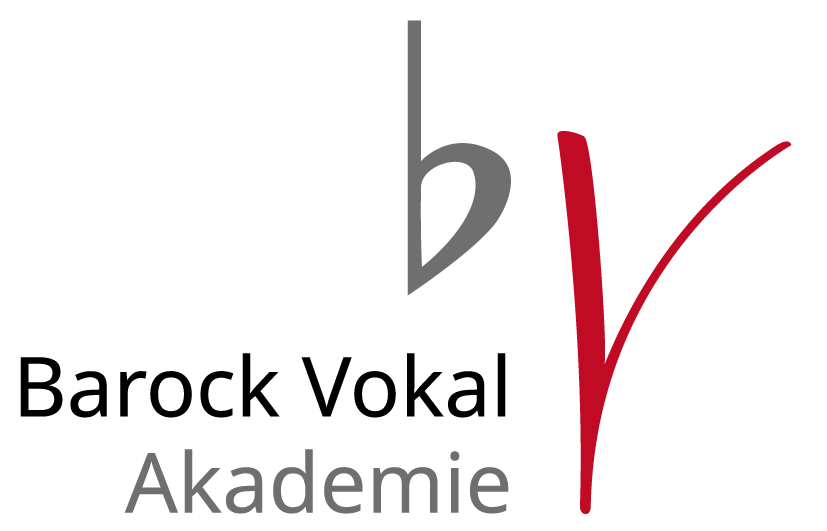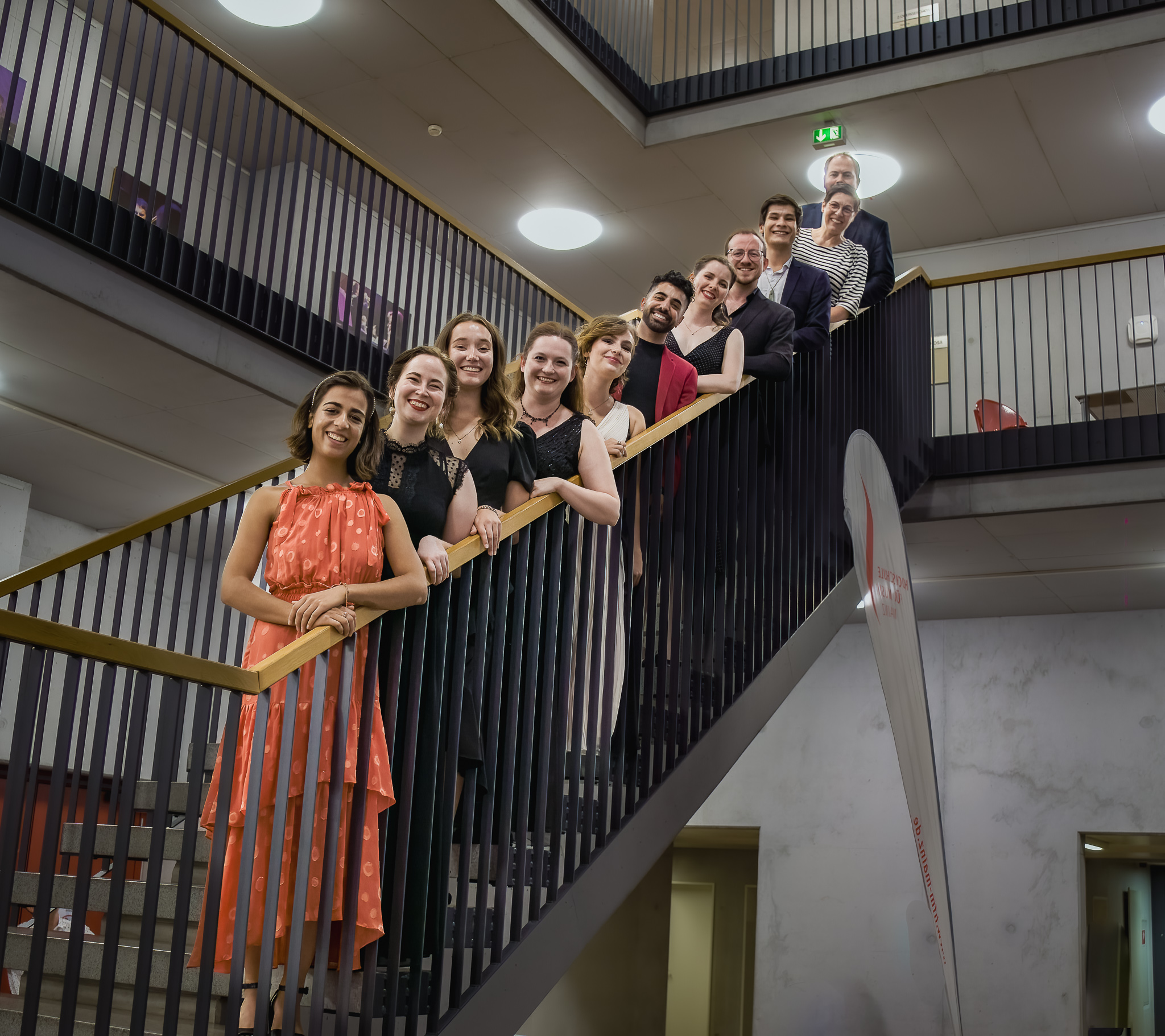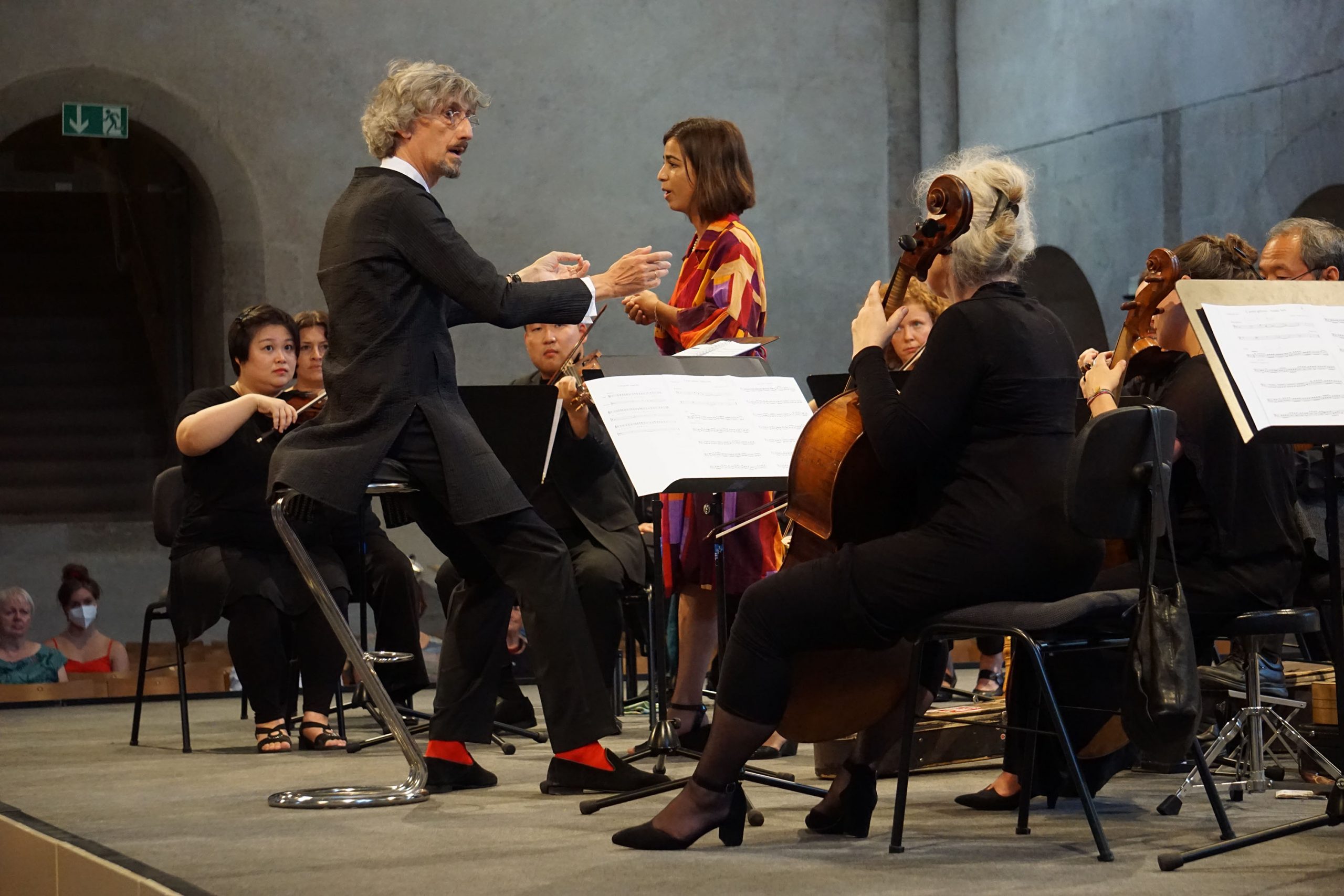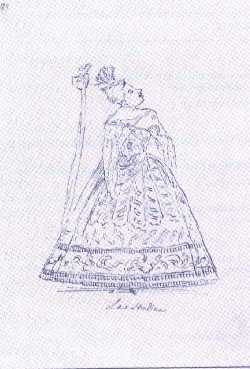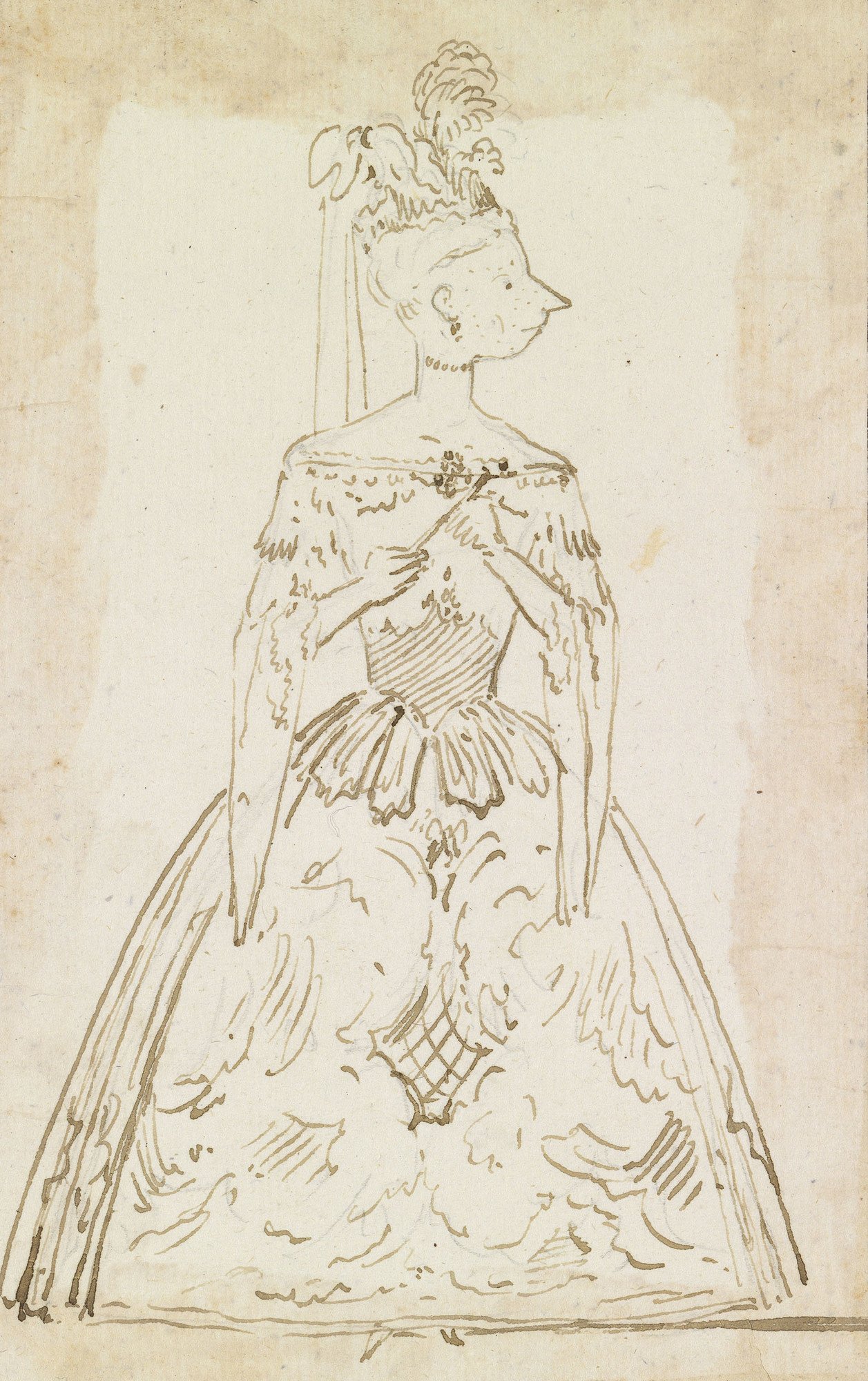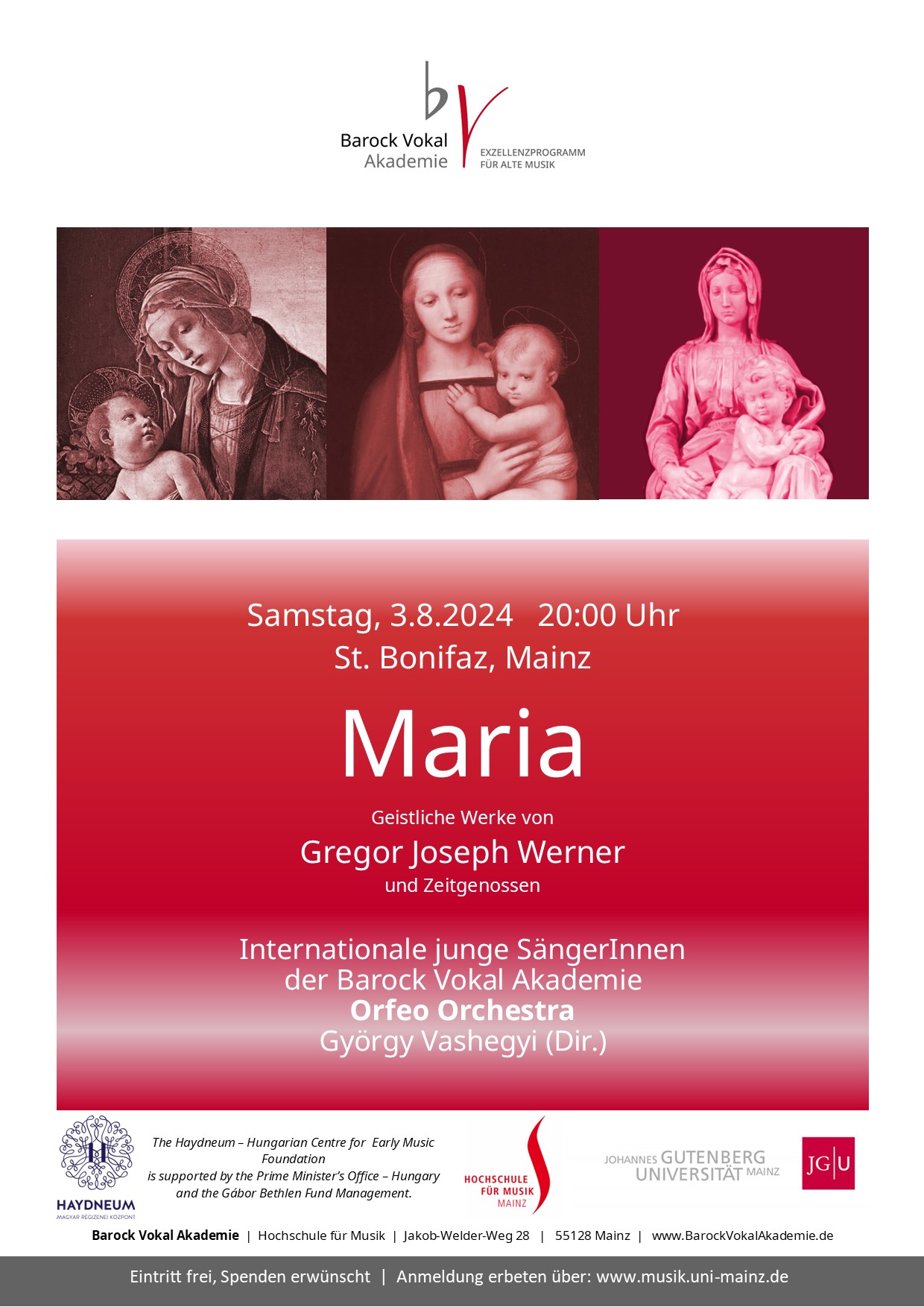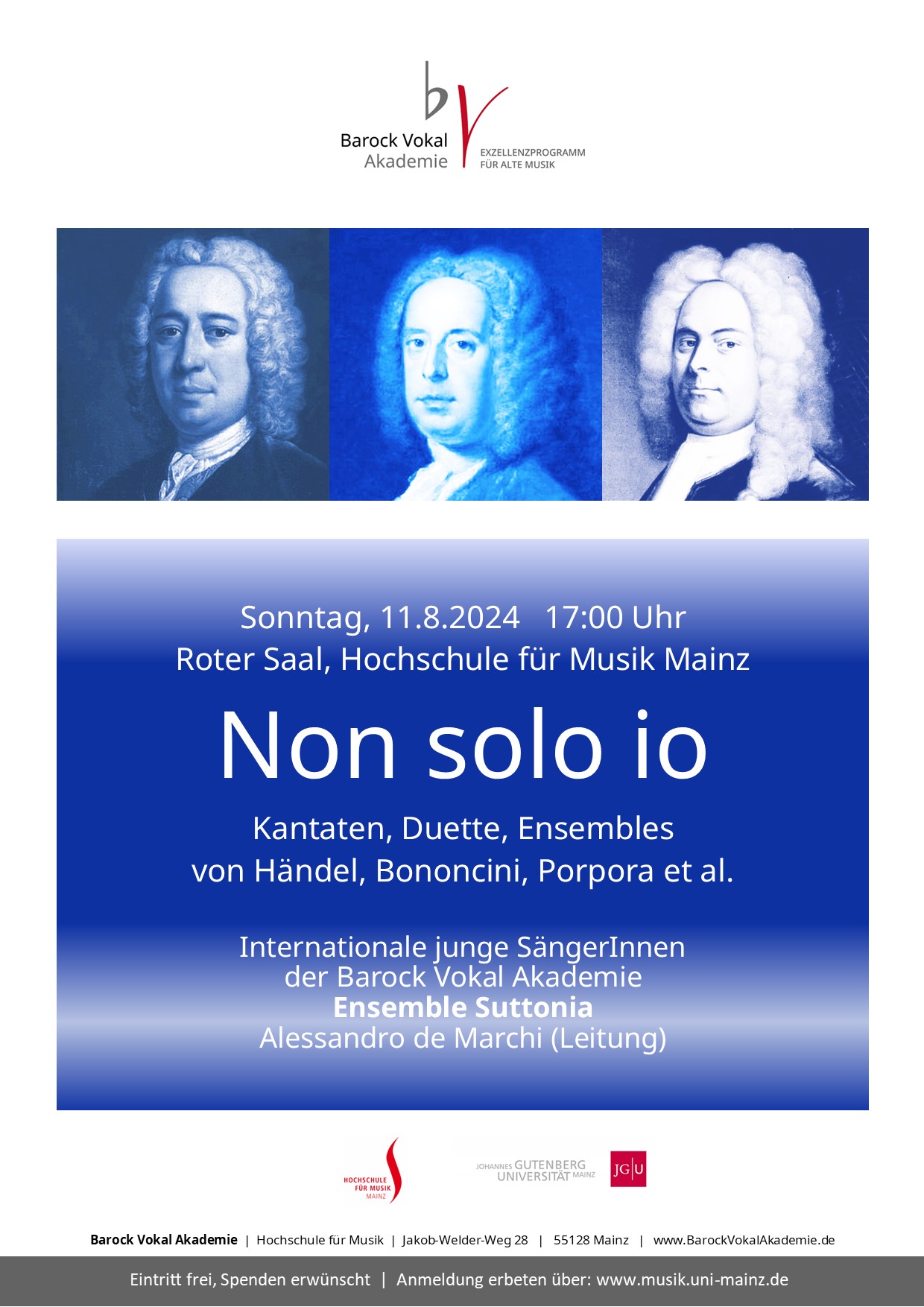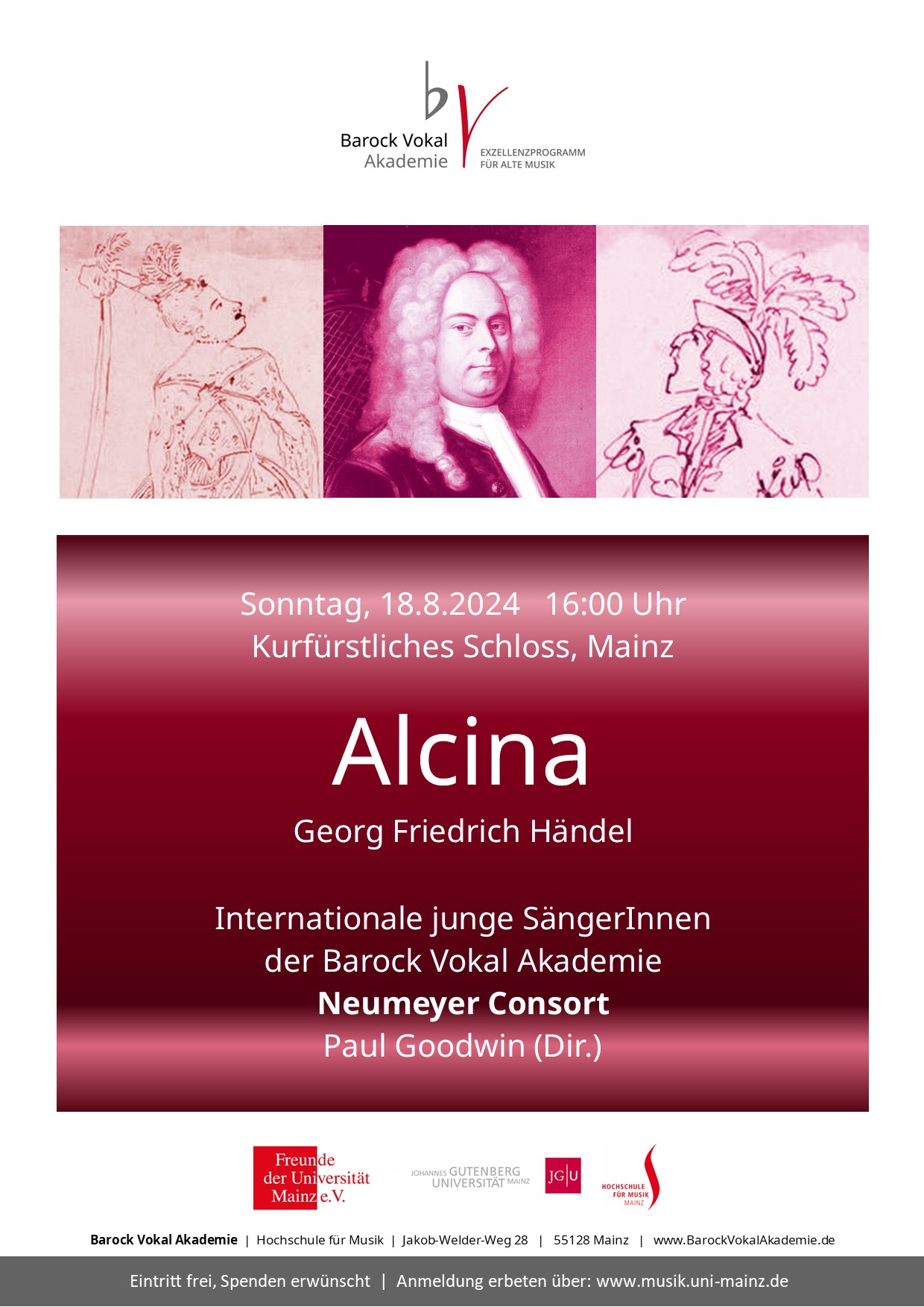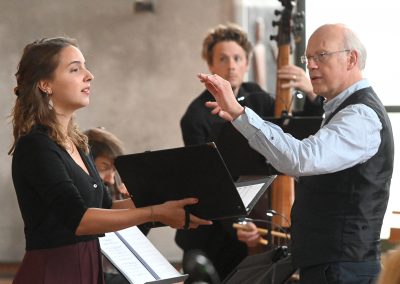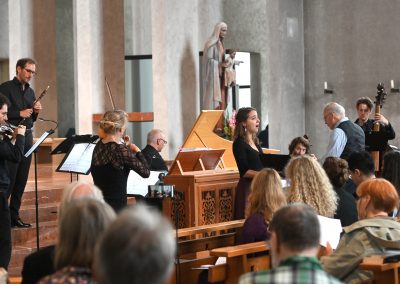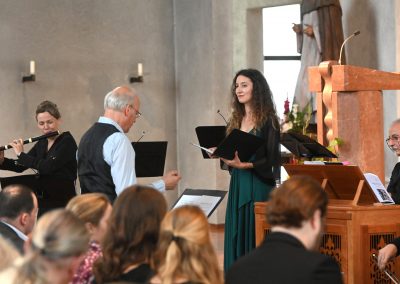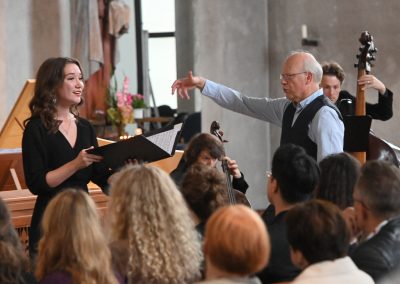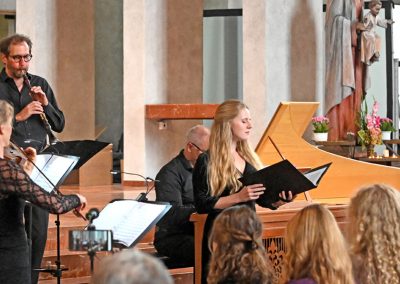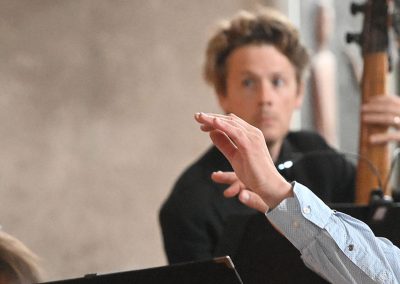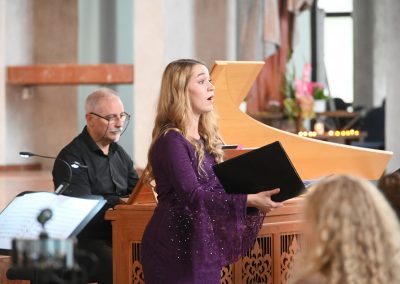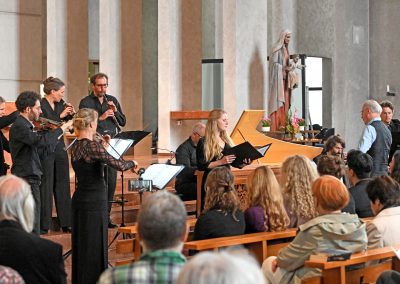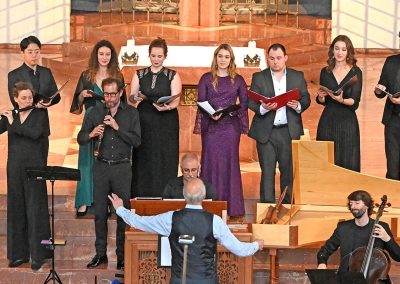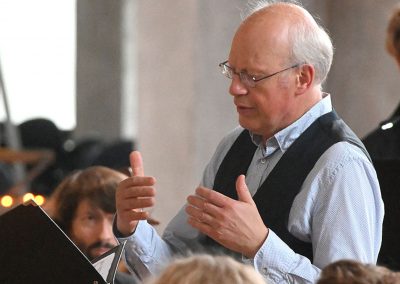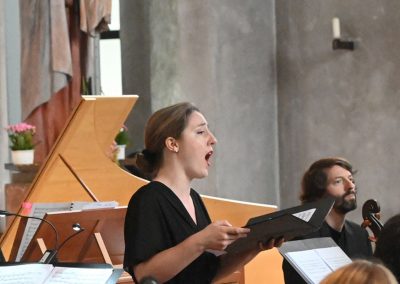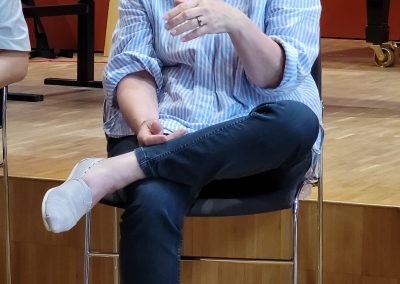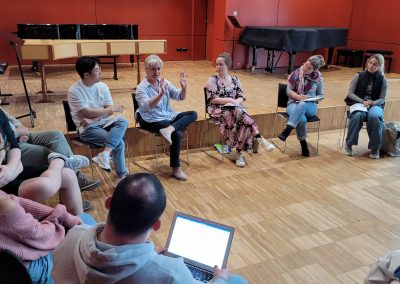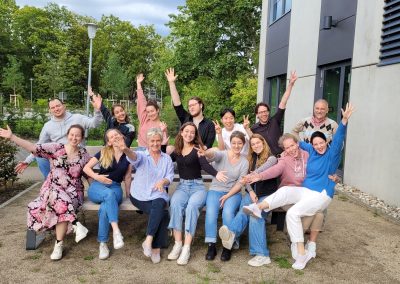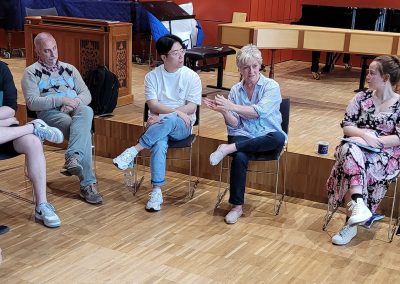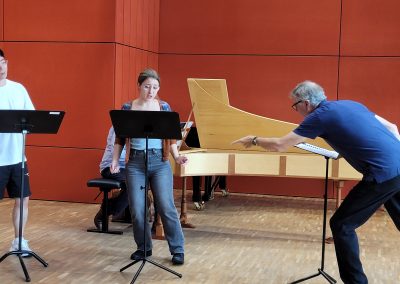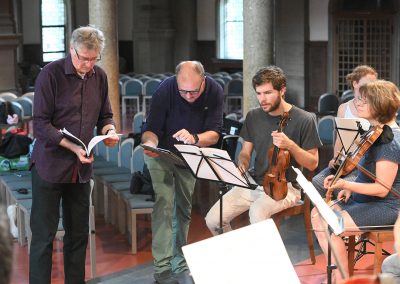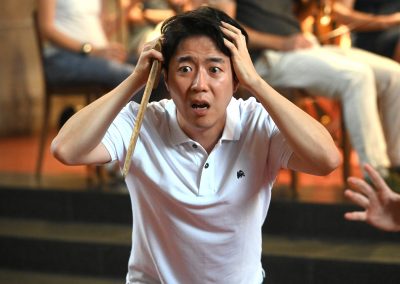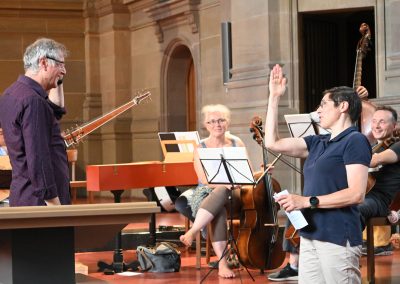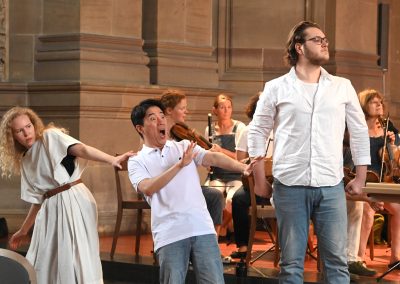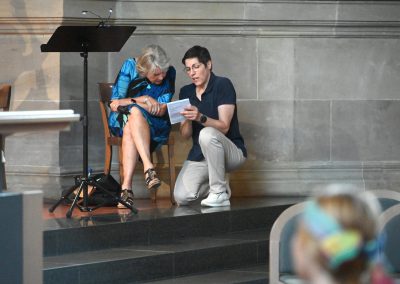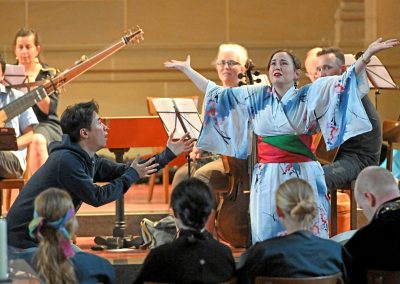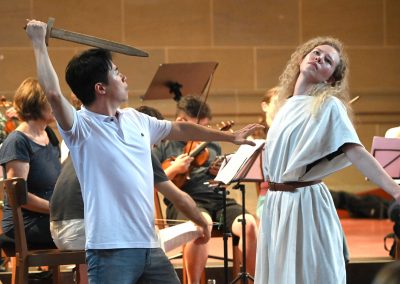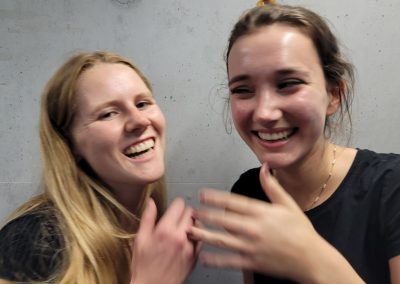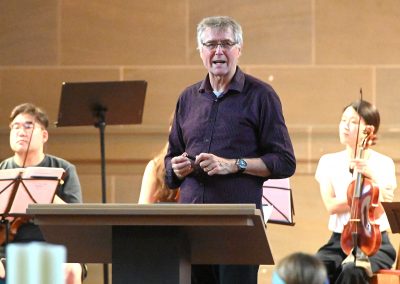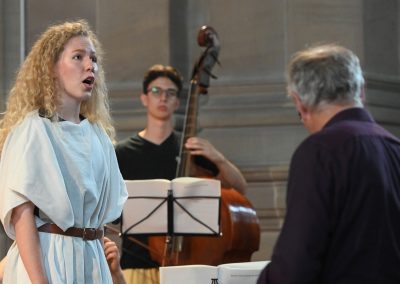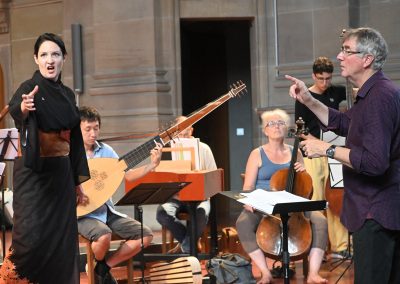Academy
Programme of Excellency for Early Music
Description
Academy Season 3
July 28th – August 18th, 2024
Concerts 2024
Information
Faculty 2024
CVs

Programme of Excellency for Early Music
In cooperation with Hochschule für Musik Mainz and Johannes Gutenberg-Universität Mainz Barock Vokal Akademie offers a unique programme for specialization on the field of Early Music, addressing advanced young singers.
The Barock Vokal Akademie would be pleased to welcome young singers – ideally not older than 30 years of age– whose level of vocal education allows them to deal with matters of stylistic inter-pretation and performance as young professionals. We would like to support young professional singers to develop their skills and introduce them members of the Early Music network. Musical inquisitiveness, enthusiasm and openness to repertoire off beaten tracks is being appreciated.
From around 1600 until well into the 18th century vocal music is based on the so called basso continuo. The singers’ focus on chamber music and their desire for (textual) expressivity gave way to vanity and the lust for excessive use of vocal embellishment and agility at the beginning of the 18th century. However, drama and virtuosity of late baroque and classical music couldn’t have developed without the profound understanding of vocal chamber music and soloistic ensemble singing.
This is our motivation to dedicate the work at BVA to arias from the 18th century and from the early baroque period, to the so-called main repertoire and lesser known pieces in German, Italian and French. We wish to offer insight in special aspects and general principles of baroque performance practice and how to use that knowledge practically. And maybe we can also kindle our participants’ curiosity to dive into the wonderful world of unpublished repertoire.


Academy 28.7.-18.8.2024
The 3rd Barock Vokal Akademie features the following three topics:
Maria – sacred music by Werner, Hasse, Fux
It’s with great joy that thanks to the cooperation with Haydneum and conductor György Vashegyi, we can offer an extraordinary possibility to our young singers of Barock Vokal Akademie 2024: To be part of the re-discovery of works by Gregor Joseph Werner (1693-1766) that haven’t been heard for more than 250 years! Werner was Joseph Haydn’ predecessor as Hofkapellmeister at the court of the Esterházy.
György Vashegyi, who joined our faculty already in 2022 will return to work with our singers in week 1 and conduct the first concert, leading Orfeo Orchestra. The concert will comprise sacred music from Gregor Joseph Werner, Johann Adolph Hasse , Johann Joseph Fux et al. with focus on Marian-related works (e.g. Ave Maria, Salve regina, Regina coeli).
Non solo io – vocal chambermusic accompanied by basso continuo
If you want to understand Early Music, there’s no way around ensemble singing, which btw is great fun! Therefore, week 2 will be dedicated to vocal chamber music by Georg Friedrich Händel, Nicola Porpora, Francesco Durante. Non solo io will concentrate on duets alongside solo pieces. Ensemble Suttonia’s continuo group will accompany the singers.
Handel – Alcina
The magic of opera, magic within the opera, spiced with a lot of drama, love, confusion and fantasic arias – this is Handel’s opera Alcina!
The final concert will be a pasticcio of Handel’s opera, the singers being accompanied by Neumeyer Consort and led by inspiring conductor Paul Goodwin.
We offer individual vocal coaching, lessons in vocal embellishment including cadenzas, recitative, round tables, performance training, baroque dance, auditions before agencies and concert organizators.
And last but not least the participants can enjoy interesting lectures from our musicological colleagues.


Concerts 2024
BVA 2023 – Impressions
Faculty of the Barock Vokal Akademie 2024
Marie-Claire Bär-LeCorre (historic dance)
teaches regularly historic dance at the dance festivals
Cracovia Danza in Krakauand the indo-european dance festival in New Delhi. Since 2009 she is teaching historic danc at the Hochschule für Musik Nürnberg. In addition she has been teaching dance and movement for singers at the same institution since 2015. She cooperates regularly with Capella de la Torre and Katharina Bäuml in projects of research and performance.
>> Marie-Claire Bär-LeCorre
Prof. Dr. Karl Böhmer (musicology, Bach and Händel)
teaches at the HfM Mainz stylistics of the 18th century. His favourite research topics are the 18th century and Bach, Handel, Alessandro Scarlatti and Mozart as well as opera seria and oratorio. He has published two books (“Mozart in Mainz”, “Händel in Rom”) and various essays in congress reports and musicological journals.
>>Karl Böhmer
Daniele Boccaccio (harpsichord, language coach Italian)
works as harpsichordist, organ player and conductor. He performs as soloist as well as continuo player with chamber music groups and orchestras. And besides teaching, he edits musical manuscripts.
>>www.danieleboccaccio.it
Alessandro de Marchi (conductor; chamber music programme: Non solo io)
succeded René Jacobs as long-time director of the Innsbrucker Festwochen and founded the biggest singing competition for Baroque singing in Europe, the Cesti-competition. An internationally renowned conductor he is a regular guest at La Fenice, La Scala, Théatre de la Monnaie, all three Berlin opera houses et al. and works with the most distinguished orchestras, baroque and non-baroque.
>>www.alessandro-de-marchi.net
Paul Goodwin (conductor, Handel: Alcina)
Paul Goodwin started out as Baroque oboist, working with the leading Baroque orchestras, before turning to conducting. He is enjoying a distinguished career as conductor of Baroque bands and symphonic orchestras and has held positions as artistic director of prestigeous festivals like the Carmel Bach Festival. He also is a dedicated teacher and commits himself to educational programmes.
>>www.paulgoodwinconductor.com
Prof. Andreas Scholl (vocal coach)
has been enjoying a successful career on the major stages of the world for decades, performing Bach, Händel, Vivaldi and a vast repertoire of lesser known composers and receiving numerous international awards for his recording. Currently he is also teaching voice at the Mozarteum in Salzburg. We are proud to have him back as member of our faculty – and as the patron of Barock Vokal Akademie 2024.
>>Andreas Scholl
Prof. Elisabeth Scholl (vocal coach, artistic director of BVA)
is a soprano with musicological background and specialization in Baroque singing. She has acquired expertise on the field of Baroque opera, oratorio and cantata throughout her extensive work with conductors and ensembles specialized in historic performance practice.
www.elisabethscholl.com
Markus Stein (harpsichord, chamber music, managing director of BVA)
teaches basso continuo at the HfM Mainz and is a sought-after accompanist for singers and chamber musicians, as well on the organ as on the harpsichord. He’s one of the relevant minds behind the telemann-project.
https://www.cembalist-markus-stein.de
Prof. James Taylor (voice)
is teaching at Yale University, in international master classes and is member of various boards of international singing competitions. His career led him onto stages around the world, performing with a vast range of the finest Baroque orchestras. He sang not only all the fantastic tenor parts in Bach’s oratorios and cantatas, but also romantic oratorio. His repertoire reaches from Early Music to romantic oratorio repertoire. Moreover, he is dedicated to Lied and art song.
>>James Taylor
György Vashegyi (conductor – Maria)
is the conductor, founder and artistic director of the Purcell Choir and the Orfeo Orchestra, and a teacher at the Liszt Academy. During his studies in conducting at the Music Academy, he participated in the masterclasses of Helmut Rilling and John Eliot Gardiner, and following graduation he was a postgraduate student at the Dresden Early Music Academy under John Toll. At the helm of his groups he has produced nearly 40 CD recordings. His research activity has culminated in countless modern-day world and Hungarian premieres. He was elected president of the Hungarian Academy of Arts in 2017 and re-elected by the board in 2020, a post he will fill until November 2023. He has also been president of the National Cultural Council since spring 2020.
>>György Vashegyi

Contact
Do you want to know more about the Barock Vokal Akademie? Feel free to send us an e-mail. We'll be happy to answer:
